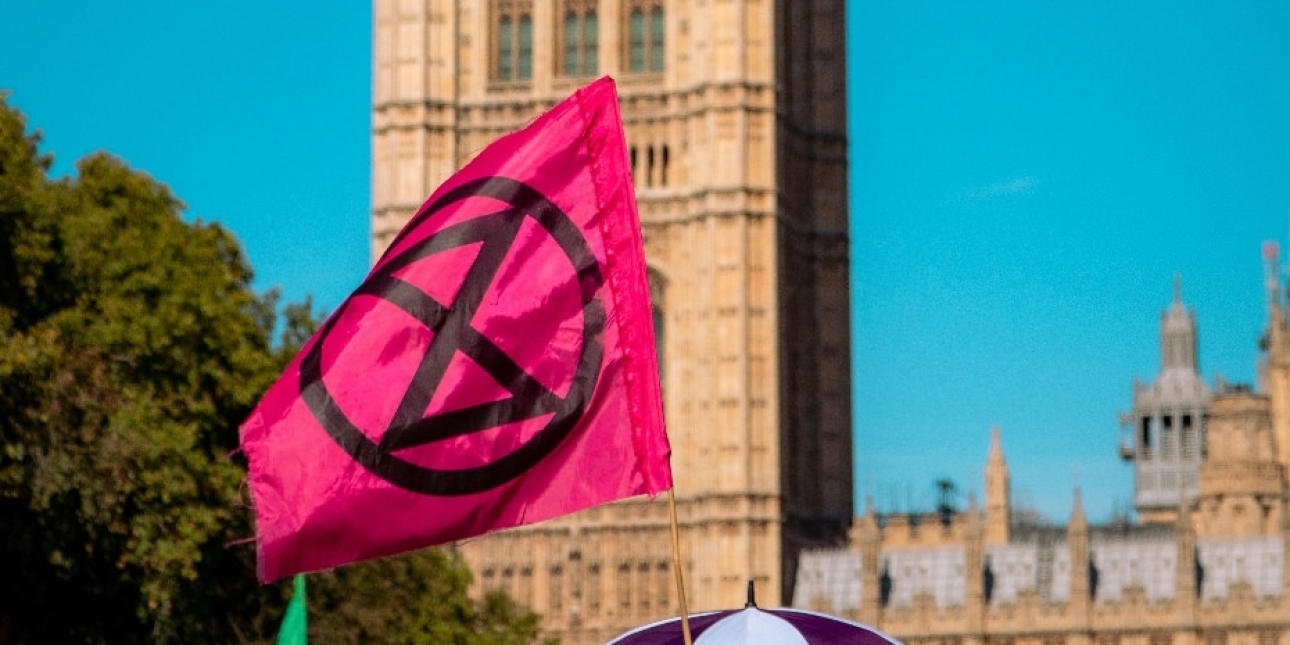PUBLIC RELATIONS
Wednesday 8th September 2021
What Charites Need To Learn From The Actions Of Extinction Rebellion (And Others)
It isn’t just about what the media (and, beyond them, the public) might think. They need to consider activist groups as well.
Activist actions
Extinction Rebellion recently held an event outside (and inside) the Science Museum in protest at Shell’s sponsorship of the museum’s current, free, exhibition Our Future Planet. The exhibition "explores the technologies being developed to remove carbon dioxide from the atmosphere". The event has been covered widely in the press – for instance in the Guardian – and the Museum seemed well-prepared for this, as it did the actions of the activists.
Shell, and many others, particularly across extraction industries, are acutely aware of the need to improve their reputations and, in part, do this through very public demonstrations of the behaviour changes they are making. But they are on a journey. They are not green companies but are 'greening'. This makes them open to continued challenge from those who think their journey is not progressing quickly enough.
But that also opens the need to carefully consider relationships with them as well. Corporates appreciate the benefits of leaning into the positive reputations of charities. These have been hard won over many years of campaigning, service provision, support, and a range of other activities. By working with charities with positive reputations amongst the public and policymakers, the corporates can strengthen their own.
Ever since the days of some of the less obvious and often controversial corporate social responsibility tie-ins, charities have got better at assessing the risks involved. But funds are tight, tighter than ever now, and reputations change, so the risk analysis alters over time.
Charities have come under scrutiny in this area again and again in recent years. The National Gallery (where Shell ended its 12-year sponsorship in 2018), the RSC and the National Theatre (which each announced in 2019 they would be ending sponsorship with BP and Shell respectively) and the National Portrait Gallery (among others) over Sackler Trust funds have all had to explain or change their positions. Universities too have had to defend both current and historic funding decisions.
Risk analysis
There are always risks for charities to consider when approached by any potential partner and these are internal as well as external. They also have their legal and regulatory requirements to consider. This makes any decision far from easy but, whatever the outcome, the charity must assume it will need to be defended and explained.
The easy option may be to say 'no' but why should the charity be deprived of funds from perfectly legal businesses? And that question will be asked. There is not really an easy or simple (or, in most cases, 'right') answer. What is essential is that there is a clear and transparent process in place so that such decisions can be explained and, if needs be, defended. Being confident that the decision can be defended is critical. Even if you are able, legally, to back away from a decision, does that make the issue go away or simply makes it worse? Does it bring more pressure? Does it impact on your reputation? Does it signal to others that you cave in at the first sight of potential trouble?
It also must be remembered that different stakeholders may adopt different positions. Again, this adds to the complication and means that the charity needs to be close to them so decisions can be based on accurate assessments and knowledge, not 'gut instinct'. Having a policy is important, and will help the decision-making process, but has it been updated recently? Circumstances always move on.
Charities' decisions about those that they do business with – sponsors, donors, patrons, celebrity supporters etc. – can always come in for scrutiny. The way in which the charity can explain its decisions will protect, or damage, its reputation with all the consequences that brings, including potential impacts on fundraising or through political or regulatory action.
The attention can come from the media, social media, politicians, or protestors. And they can feed off each other increasing the prominence and impact of an issue.
Actions
So, when thinking about partnerships and similar arrangements, charities should:
- Know exactly what the legal and regulatory requirements are as of now
- Ensure that a process is place for making such decisions, follow it and document it
- Consider the views likely to be expressed by different stakeholders and include them in the analysis
- Consider the risks involved alongside the benefits
- Plan all aspects of the communications strategy from media statements through to what to do if a site is targeted by an activist group
- Have a process to review decisions over time as circumstances change
- Related to this, always have arrangements in place so that relationships can be ended, if necessary. It may not be easy to simply walk away if that has not been considered upfront.
Not considering these steps is playing with reputation fire and can lead to valuable time and resources being spent in unnecessary firefighting and distracting from pursuing the charity’s purposes.
Photo by Fred Moon on Unsplash
